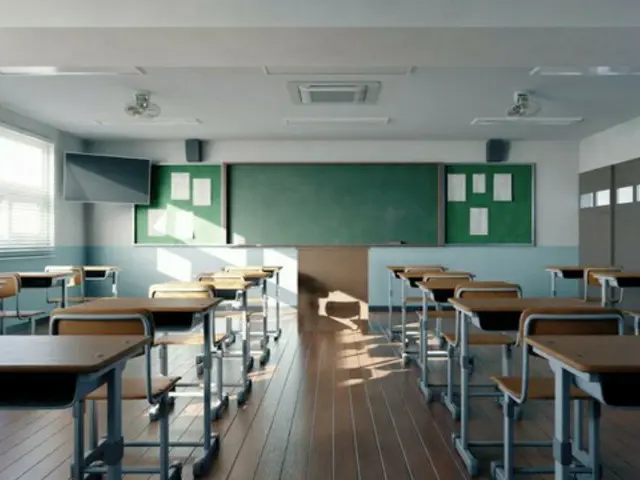On the 4th of this month, rallies were held across South Korea to commemorate the teachers who died and to call for the expansion of ``teacher authority (authority and power as teachers).'' Korean media over the decline in authority and authority as teachers
, It is reported that there is no example that the anger of teachers has erupted like this. In South Korea, ``Teacher's Day'' (May 15th) is a day to respect and express gratitude to teachers and former teachers.
Teachers have been regarded as a noble profession, such as their existence. ``Songsaengnim'', which means ``teacher'' in Korean, literally translates to ``sensei-sama'' in Japanese. However, the Korean religion, which is the object of such respect,
Many teachers are now suffering from "clerical violations" that threaten their authority and rights as teachers. In a recent poll, 99% of teachers said they had been abused.
93% said they were afraid of being reported for child abuse while teaching children/students. Additionally, 87% of teachers said they had considered retiring or changing jobs in the past year. In addition, 27% said
The patient answered that he had a history of attending the department. Teachers are said to have a relatively weak position in relation to parents, with teachers often asking questions like ``I'm not qualified to teach my child'' and ``Why isn't my child getting better grades?''
The school is said to be exhausted from dealing with complaints from parents. The Korean newspaper Chosun Ilbo also pointed out, ``Even students now know that teachers are vulnerable to protests from parents.'' So
An eighth-year teacher at an elementary school in Gyeonggi-do, near Ulu, told the newspaper that last year, a student told him, ``Japanese class is not fun, so I'll ask my mom to protest.''
Ta. Furthermore, there are many cases where legitimate instruction by teachers in educational settings is reported as child abuse, and it has been pointed out that teachers are no longer able to carry out legitimate educational activities.
In July of this year, a second-year teacher (23 at the time) who was teaching first grade at an elementary school in Seoul was found dead in the body. The teacher had been involved in an incident between students in class the week before her death.
I dealt with the problem, but later, one of the children's guardians came to the school and protested that the teacher was "unqualified to be a teacher." He reportedly asked her, ``How do you plan to take care of your children?'' teaching
The member is believed to have committed suicide. At this school, staff, including the deceased teacher, reportedly struggled to deal with excessive complaints from parents.
After that, small businesses were established in Goyang, Gyeonggi-do, near Seoul, and Gunsan, Jeollabuk-do, in the southwest.
School teachers are committing suicide one after another, and the educational scene in South Korea is in turmoil. According to a survey by the Ministry of Education (the Ministry corresponds to the Ministry), public elementary, middle, and high school education in South Korea from 2018 to the end of June this year
100 members were found to have committed suicide. The breakdown was that elementary schools had the largest number of students, with 57, followed by high schools with 28, and junior high schools with 15.
For the fourth consecutive year, 14 teachers committed suicide in 2018, 16 in 2019, 18 in 2020, and 22 in 2021.
Although the number decreased to 19 last year, 11 people have taken their own lives as of the first half of this year. At the National Assembly building in Seoul on the 2nd of this month, ahead of the 49th anniversary of the suicide of a teacher at an elementary school in Seoul.
Teachers held a meeting in front. According to the organizer's announcement, 300,000 people gathered, chanting ``Protect teachers who have been pushed to the edge of a cliff,'' and calling for revisions to laws related to clerical authority.
I met. A large-scale rally was also held on the 4th of this month, the 49th day of the teacher who committed suicide, and the participants gathered in black clothes. However, this day was a weekday, and some schools were temporarily closed.
Many teachers are believed to have taken annual paid leave or sick leave to participate in the meetings. The Ministry of Education considers taking paid leave, sick leave, and discretionary leave for group activities to be illegal, and will consider disciplinary action.
However, on the 5th, he withdrew the idea. Minister of Education Lee Joo-ho said at a meeting with teachers' unions on the 5th, "I can understand the genuine feelings of mourning for the deceased and the feelings of the majority of teachers about the restoration of teaching authority.
It was. Education authorities will not discipline teachers." Earlier this month, the government promised to investigate the truth behind the teacher's suicide and announced measures to restore teachers' authority. Teachers together
Although the Kuru Labor Union has a certain degree of appreciation for this, it is calling for the implementation of policies based on eight pillars, such as guaranteeing the right to education and establishing a unified grievance system.
■Main consultation services for problems introduced on the Ministry of Health, Labor and Welfare website to prevent suicide
●Mental health consultation unified dial: 0570-064-556
●Yorisoi hotline: 0120-279-338, from Iwate, Miyagi, and Fukushima prefectures: 0120-279-226
●Life Phone: 0570-783-556
2023/09/06 10:27 KST
Copyrights(C)wowkorea.jp 5

